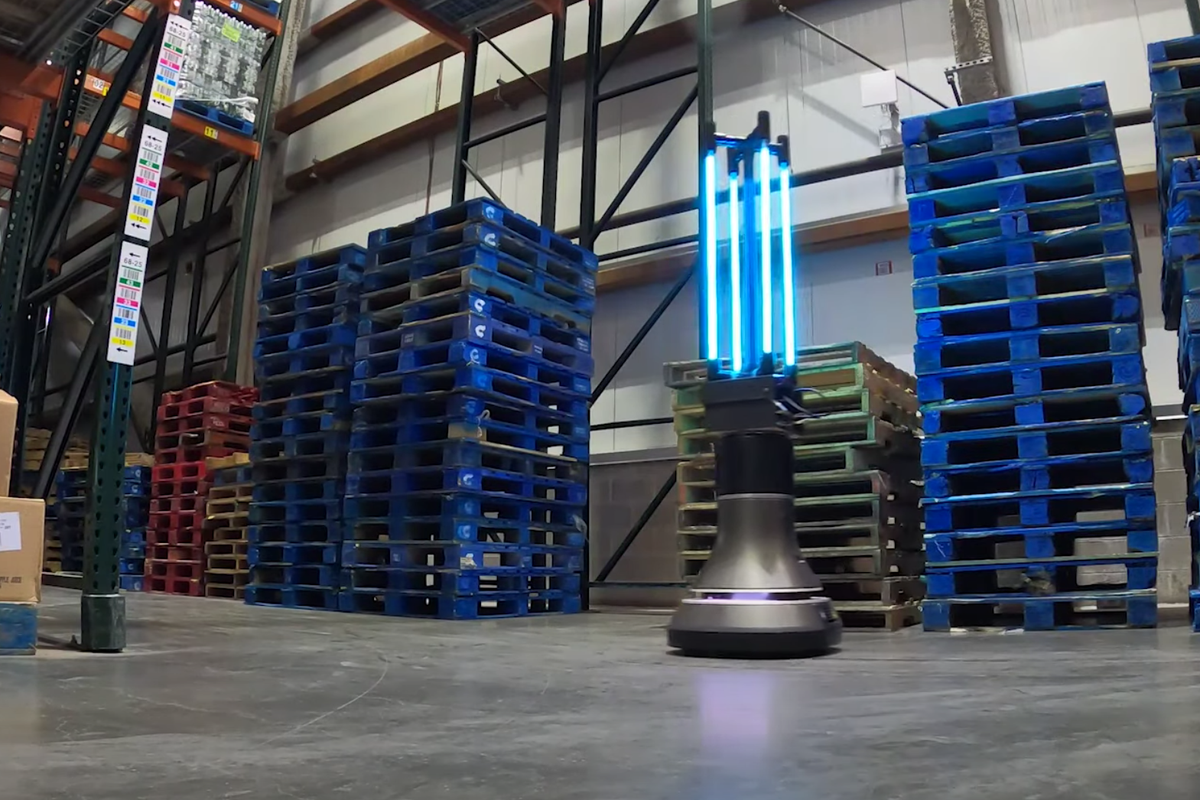Robotics

MIT CSAIL
MIT autonomous robot uses UVC light to help disinfect a food bank
Ultraviolet light disinfects surfaces as it shines on them

Ultraviolet light disinfects surfaces as it shines on them
Autonomous robots shining ultraviolet light could be used to help disinfect warehouses and food banks. That is the claim of the CSAIL department of the Massachusetts Institute of Technology (MIT), whose researchers have created the robots to serve as another method to clean large indoor spaces of virus particles, including those that come from coronaviruses.
Read More:
UVC light is not safe for humans to be exposed to — ultraviolet light is what burns your skin on a summer's day – so the robots have to be used while warehouse staff are elsewhere. Although traveling at just 0.22mph, the robots can disinfect a 4,000 square foot warehouse in half an hour, meaning workers don't need to vacate the area for long.
First reported by Engadget, the CSAIL researchers are able to control the robots remotely, plotting their route for them. But once they have learned one route, they can then follow it autonomously without any further help.
CSAIL partnered with Ava Robotics for the experiment, which saw a prototype robot deployed at the Greater Boston Food Bank. In 30 minutes, the entire warehouse is disinfected, with approximately 90 percent of aerosolized coronavirus particles on surfaces neutralized. The Food Bank said the same kind of disinfecting could be done by wiping down surfaces with recommended cleaners as well.
Researchers involved in the project say the robots could also be used to disinfect places like factories, schools, supermarkets and restaurants.
A lot of focus is being put on UVC light at the moment. It has previously been used to sterilize medical equipment in hospitals, and ultraviolet light boxes can be bought to remove bacteria from items like smartphones and watches in just a few minutes. Amazon is also working on a roving UVC robot for disinfecting its warehouses and Whole Foods stores.
It was also reported this month that far-UVC light, which has a narrower wavelength and is not harmful to humans, can also be used to effectively kill airborne coronavirus particles. Researchers from Columbia University Irving Medical Center said the light "kills more than 99.9 percent of airborne coronaviruses."iRobot Roomba 675 Robot Vacuum-Wi-Fi Connectivity, Works with Alexa, Good for Pet Hair, Carpets, Hard Floors, Self-Charging
GearBrain Compatibility Find Engine
A pioneering recommendation platform where you can research,
discover, buy, and learn how to connect and optimize smart devices.
Join our community! Ask and answer questions about smart devices and save yours in My Gear.
